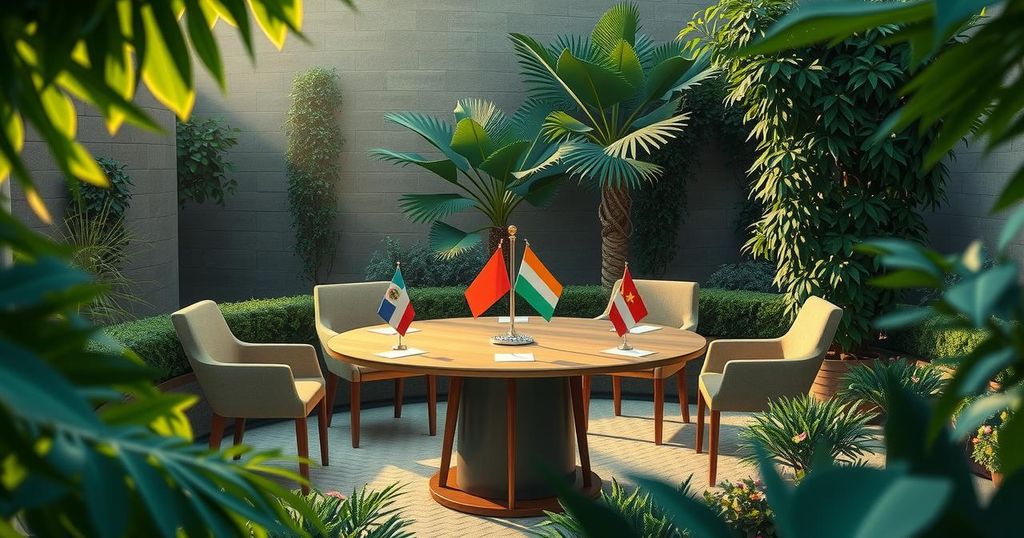DRC and Rwanda Seek Ceasefire Amidst Ongoing Conflict in Eastern Region

In a notable meeting in Qatar, Presidents Félix Tshisekedi and Paul Kagame called for an immediate ceasefire in eastern DRC amidst ongoing violence from M23 rebels. The DRC accuses Rwanda of supporting these rebels, while Rwanda defends its military involvement as self-defense. Despite challenges, both leaders expressed a commitment to ongoing discussions aimed at establishing peace, with future talks anticipated.
Presidents Félix Tshisekedi of the Democratic Republic of Congo (DRC) and Paul Kagame of Rwanda have called for an “immediate ceasefire” in eastern DRC following direct discussions in Qatar. This meeting marks the first between the two leaders since the escalation of M23 rebel violence, which has resulted in 7,000 deaths this year alone.
The response of M23 to the ceasefire proposal remains uncertain, particularly after their refusal to participate in recent peace talks held in Angola. The DRC government accuses Rwanda of supporting these rebels by providing arms and troops, while Rwanda denies these allegations, maintaining that its military actions are defensive against the DRC army.
Rwanda has also faced accusations from the DRC regarding unlawful mineral exploitation in its eastern region. Previous peace talks arranged by Angola failed when Rwanda insisted on direct negotiations between the DRC government and the M23 rebels, leading to rapid advances by the rebel group, seizing critical cities like Goma and Bukavu.
Following the recent meeting, Qatar’s foreign ministry released a joint statement confirming a commitment to an “immediate and unconditional” ceasefire, though details regarding its implementation remain vague. The leaders acknowledged the importance of ongoing discussions to lay a foundation for lasting peace.
The talks were unexpected as the two presidents have often publicly traded criticisms. The Rwandan presidency emphasized the necessity of DRC-M23 dialogue to resolve fundamental issues. President Kagame expressed optimism, stating that collective efforts could expedite the peace process.
This diplomatic initiative was reportedly prompted by Qatar’s Emir, Sheikh Tamim bin Hamad Al Thani, further emphasizing the Gulf nation’s role as a pivotal ally to both African governments. The DRC’s government also hinted at future negotiations to build on the outcomes of this meeting, as previous attempts to unite DRC officials and M23 representatives ended in failure, particularly after the rebels withdrew following EU sanction announcements.
In conclusion, the recent talks between Presidents Tshisekedi and Kagame in Qatar underscore the urgent need for a ceasefire in the ongoing conflict in eastern DRC. Although both leaders have expressed a commitment to peace, the future efficacy of these negotiations relies heavily on M23’s response and the practical steps taken towards implementation. Such dialogue is crucial in addressing the deeper issues behind the conflict and fostering lasting stability in the region.
Original Source: www.namibian.com.na








